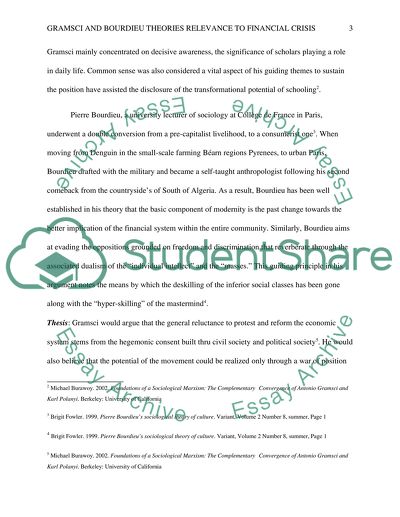Cite this document
(“Gramsci and Bourdieu Theories Relevance to Financial Crisis Term Paper”, n.d.)
Gramsci and Bourdieu Theories Relevance to Financial Crisis Term Paper. Retrieved from https://studentshare.org/sociology/1584067-hegemony-consent-civil-society-common-sense-habitus-reproduction-misrecognition-maintenance-of-capital
Gramsci and Bourdieu Theories Relevance to Financial Crisis Term Paper. Retrieved from https://studentshare.org/sociology/1584067-hegemony-consent-civil-society-common-sense-habitus-reproduction-misrecognition-maintenance-of-capital
(Gramsci and Bourdieu Theories Relevance to Financial Crisis Term Paper)
Gramsci and Bourdieu Theories Relevance to Financial Crisis Term Paper. https://studentshare.org/sociology/1584067-hegemony-consent-civil-society-common-sense-habitus-reproduction-misrecognition-maintenance-of-capital.
Gramsci and Bourdieu Theories Relevance to Financial Crisis Term Paper. https://studentshare.org/sociology/1584067-hegemony-consent-civil-society-common-sense-habitus-reproduction-misrecognition-maintenance-of-capital.
“Gramsci and Bourdieu Theories Relevance to Financial Crisis Term Paper”, n.d. https://studentshare.org/sociology/1584067-hegemony-consent-civil-society-common-sense-habitus-reproduction-misrecognition-maintenance-of-capital.


